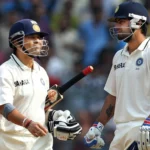Sports are more than just games; they are an integral part of our culture and identity. Understanding the sporting preferences of a nation can provide insights into its values, history, and social dynamics. In this comprehensive exploration, we will navigate through various facets of sports preferences within a country, shedding light on why some nations have an unwavering passion for sports, while others may not.
The Influence of Culture
Do most people in your country like sport because of cultural influences?
Culture plays a pivotal role in shaping our sporting preferences. Some countries have a deep-rooted sports culture, where sports are not just entertainment but a way of life. Think of countries like Brazil, where football (soccer) is not just a sport; it’s a religion. The traditions, rituals, and celebrations tied to sports events are deeply ingrained in the culture.
On the other hand, countries with a rich history of traditional sports might prioritize them over modern sports. The cultural significance attached to activities like sumo wrestling in Japan or cricket in India showcases the profound impact of culture on sports preferences.
Regional Disparities
Are sports preferences influenced by regional disparities?
Yes, they are. In a vast and diverse country, sports preferences can vary greatly from one region to another. Factors like climate, geography, and historical events can all contribute to these disparities.
For instance, in colder regions, winter sports like ice hockey may be more popular, while coastal areas might have a stronger affinity for water-based sports. Furthermore, regions with a successful local sports team tend to rally behind them, creating a stronger sports culture in that area.
Social Factors
Do social factors influence whether people in your country like sports?
Absolutely. Social factors, including economic status, education, and urbanization, can significantly impact sports preferences. In economically developed countries, people may have more access to sports facilities, leading to greater participation and interest in sports.
Education also plays a vital role. Schools and universities often promote sports, and students who engage in sports activities are more likely to develop a lifelong interest in them. Additionally, urban areas with their bustling sports clubs and events tend to cultivate a sports-loving population.
The Role of National Pride
Does national pride play a role in sports preferences?
National pride can be a powerful driving force behind sports preferences. When a country excels in a particular sport on the international stage, it often ignites a sense of pride and unity among its citizens. The Olympic Games, for example, are a stage where countries compete not only for medals but also for national honor.
Sports can also be a way for a country to assert its identity and strength on a global scale. Think of the FIFA World Cup, where nations compete for the title of world champion, showcasing their passion for the sport and their country.
FAQs
Q: Are there countries where sports are not popular at all?
A: While sports have a universal appeal, there are countries where they are less popular due to various factors such as political turmoil, limited resources, or cultural differences.
Q: What can governments do to promote sports in their countries?
A: Governments can invest in sports infrastructure, promote sports education in schools, and support local sports clubs and athletes to encourage sports participation.
Q: Do gender and age play a role in sports preferences?
A: Yes, they do. Gender and age can influence the types of sports people are interested in. For example, younger generations may gravitate towards newer sports, while older generations may prefer traditional ones.
Q: Can major sporting events like the Olympics change a country’s sports culture?
A: Yes, major sporting events can have a transformative impact on a country’s sports culture, fostering a sense of national pride and inspiring future athletes.
Q: How can a country with a weak sports culture develop a love for sports?
A: Building sports infrastructure, organizing local sports events, and promoting sports at the grassroots level can help nurture a sports culture in such countries.
Q: Are there any surprising examples of sports preferences in different countries?
A: Yes, some countries have unique and unexpected sports preferences. For example, Finland’s love for competitive wife carrying races is a fascinating example of unconventional sports interest.
Conclusion
In the grand tapestry of global sports, every country weaves its unique thread. Whether it’s the passion of football in Brazil, the dedication to sumo wrestling in Japan, or the love for cricket in India, sports preferences reflect the heart and soul of a nation. So, the next time you wonder, “Do most people in your country like sport?” remember that the answer lies in the intricate interplay of culture, region, society, and national pride.
That’s all! You can also checkout: What country is the best at each sport? and What is the length of the Kabaddi pitch?







